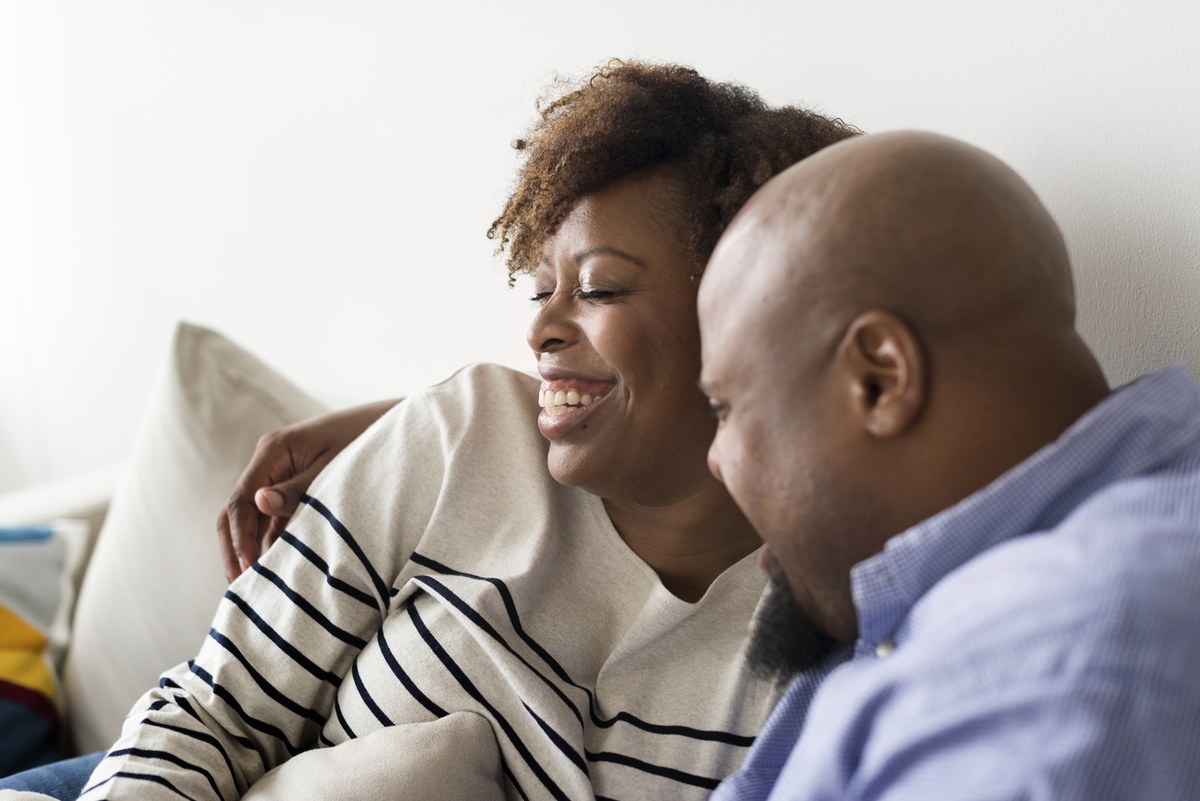Coping With Relationship-Related Emotional Distress, Anxiety and Depression
In the best of worlds, relationships would likely always bring happiness, fulfillment, and enrichment to your personal life. Unfortunately, the world can be far from perfect; many relationships do contribute positive attributes, but they can also generate challenges and stressful situations. Different relationships may come with a series of dynamics and factors that contribute to your emotional health, for better or for worse. As a result, you may benefit from being aware of what type of relationship you want and how to navigate times where emotional distress comes because of your relationship. Below are four distinct skills and coping strategies that can help you approach conflict like a pro. Let’s take a closer look.

Coping with emotional distress caused by your relationship
Emotional distress can be challenging enough, but when it’s caused by your relationship, this can add an entirely new level of hurt. Of course, the reason behind the distress can make a difference, but the involvement of someone you deeply care about can make approaching the situation more difficult. That’s why having the right coping skills and stress management strategies might matter so much. Some behaviors and habits can help you process your feelings and learn to communicate them healthily so that you and your partner can overcome the root of the problem.
1. Exercise regularly to cope with the physical symptoms of stress
If you’re feeling unhappy because of something in your relationship, sometimes, taking a step back and exercising can make a positive difference. Exercise can be as simple as taking a walk in the park or going for a jog; it doesn’t necessarily have to entail hardcore workouts.
Exercise can be a great way to work through emotional distress. It’s generally been proven that physical activity helps people not only physically, but also emotionally and psychologically. Clearing your mind, allowing yourself to process your emotions, and returning to the situation after calming down can help immensely. Even if you are managing ongoing emotional distress that is not isolated to one incident, exercising is an emotion- focused strategy that can still assist you in working through your emotional state.
2. Write in a journal all the things that contribute to your emotional distress
Writing down how you’re feeling and what you’re going through in a personal journal can be another way of positively coping with emotional distress. This coping mechanism may be particularly helpful because it allows you to release your emotions and put them into words. After all, holding onto emotional distress can be extremely toxic and harmful to your psychological well-being. Many people who write in journals find this coping method conducive to finding solutions and letting go of negative, pent-up energy. Depending on the nature of what you’re writing in a journal, you may want to keep it in a personal place. Or you might choose to use it as a tool to start conversations with your partner. Whatever works for you can be totally acceptable.
3. Connect with friends and family, and get support for coping with traumatic stress
If you’re experiencing emotional distress caused by your relationship, connecting with other people in your life is a problem-focused coping skill that can make a positive difference. Having friends and family in your corner often matters, especially during tough times. Talking to other people may be not only therapeutic but also able provides you with a sounding board. The friends and family in your life may also have helpful, unique perspectives which can aid you in determining what to do next in your relationship. No matter what’s happening in your relationship, maintaining connections with other people in your life can be important for your mental health.
4. Talk to your significant other, and explore ways to deal with anxiety and depression in your relationship
When you’re in a relationship with someone, you likely should be able to talk to them if you’re experiencing concerns because of the relationship. You should be open about discussing anxious feelings and depressive instances in your relationship, so you can explore ways to fix them before they become a major issue. Allowing it to take hold can be unfair to both you and your partner, regardless of why it’s blossomed. When you talk to your significant other, explaining how you feel and discussing the issues in the relationship can be difficult, but important. How your partner responds may also be very telling.
If they express interest in fixing the problems and ending what is causing the emotional distress, then the relationship may be worth saving. If your significant other does not express interest in healing the relationship, it may be time to re-evaluate whether or not this is the best relationship for you.
Steering clear of negative coping mechanisms
Maintaining positive coping skills in the face of emotional distress, while challenging, can be imperative. However, it’s also important to steer clear of coping mechanisms which can be averse to your mental health. Unfortunately, there are many people who fall into the trap of negative coping mechanisms; sometimes, these negative coping mechanisms are employed for the sake of temporary escapism, but this almost never truly solves the problem at hand.
Unhealthy coping mechanisms to steer clear of can include things like misusing drugs and alcohol. There can be many cases of people turning to these substances as a coping strategy and then finding themselves in even worse situations. If you’re around people who have a habit of engaging in unhealthy coping mechanisms and encouraging you to do the same, it might be a good idea to reconsider spending your time with them. Hanging out with the wrong individuals can also serve as an unhealthy coping mechanism.
If you are struggling with substance use, contact the SAMHSA National Helpline at (800) 662-4357 to receive support and resources. Support is available 24/7.
Letting go of relationships that cause emotional suffering or psychological distress
Whether or not you choose to proceed in a relationship or let go of it is a decision that only you can make. Almost no relationship is perfect, and there may always be times which involve rough, challenging periods. However, if you are constantly in a state of emotional distress, it’s likely not healthy for either person in the relationship.
Sometimes, letting go of certain things or people can be in your best interest, especially if the association is wearing on you. Not all relationships may be meant to last forever; sometimes, they can be meaningful enough simply by teaching you a lesson about yourself or your needs. Your mental health and well-being shouldn’t play second fiddle to a relationship that isn’t working out.
Prioritizing your mental health
The good standing of your mental health should likely be a priority in your life. No matter who you are or what type of relationship you’re in, if you’re not doing or feel well, everything else in your life can be impacted. In many ways, relationships and mental health can go hand in hand. If one isn’t in a great place, it’s likely the other won’t be, either.
Furthermore, a partner who values you and has your best interests at heart likely will not behave in ways they know to be damaging to your mental and emotional health. This may be another thing to keep in mind as you employ various positive coping skills throughout your relationship.
Seeking mental health support for psychological distress
Whether you’re working through emotional distress caused by your relationship or another matter altogether, there is absolutely nothing wrong with seeking professional help. As a matter of fact, seeking professional help can be highly beneficial.
How online therapy can help
If you’re interested in obtaining professional help, it might be a good idea to consider pursuing online therapy to get started. Not only does online therapy make it simple to join sessions from the comfort of home, but it also can make it easy to invite your partner to join, too. Saving time and money by skipping the commute to an in-person office might make getting the support you need less of a potential obstacle.
No matter where your relationship is at, it’s likely that online therapy can help you get things back on track. One study revealed that a whopping 95% of couples who engage in online couples counseling consider it helpful. Even if you choose to pursue individual therapy, it’s still true that you can experience significant benefits that may help you decide how to best move forward.
Takeaway
When emotional distress arises as a result of your relationship, it’s often best to find ways to healthily process and communicate your emotions to your partner. You can do this through mindfulness activities, getting your body moving, and giving yourself space to think. Ultimately, only you can decide whether a relationship is right for you, but when coping skills like these aren’t enough, it may be time to consider moving on.
How do I deal with anxiety and depression caused by a relationship?
To deal with anxiety and depression from a relationship, you need to put your mental health first. Get help from a therapist or counselor. They'll give you a safe place to talk about your feelings and learn ways to cope. Set clear limits with the person involved to protect your emotions. Take care of yourself too. Work out, try mindfulness, and hang out with friends and family who support you. This can boost your confidence and help you bounce back.
Try to identify why you’re feeling anxious and depressed in your relationship. If you notice a pattern, you may be able to recognize if you are in an emotionally abusive relationship. Intentional infliction, or even negligent infliction, of emotional distress by your partner may result in anxiety and depression.
What are the physical symptoms of traumatic stress?
Traumatic stress can affect your body and mind in many ways. You might get headaches, feel tired all the time, or have tense muscles. You may also experience other symptoms such as stomach upset, palpitations, and difficulty sleeping. These symptoms show how your body reacts to trauma and can even last long after a traumatic event in your relationship. Even traumatic events that happened when you were a child can affect you as an adult.
Why am I emotionally distressed?
There could be many reasons why you are emotionally distressed. However, finding the main reason will help you understand your emotions. Some of the common causes of emotional distress can include past trauma such as the loss of a loved one, a breakup, work stress, or a traumatic event you experienced as a child. Emotional distress can also come from financial troubles and changes in your circumstances, to which you’re having difficulty adapting.
Don't hesitate to talk to a therapist if you're undergoing a lot of stress and experiencing mental suffering. It’s important to take action and address the issues that cause you distress because severe stress may harm your health and lead to physical illness. A mental health professional can help you develop the ability to cope with potentially distressing situations.
What are the symptoms of being emotionally overwhelmed?
What is the difference between mental and emotional stress?
Is crying emotional distress?
How can you tell if someone is in emotional distress?
Is emotional distress the same as depression?
How do you stop crying when sad?
Is it better to cry or hold it in?
- Previous Article
- Next Article
